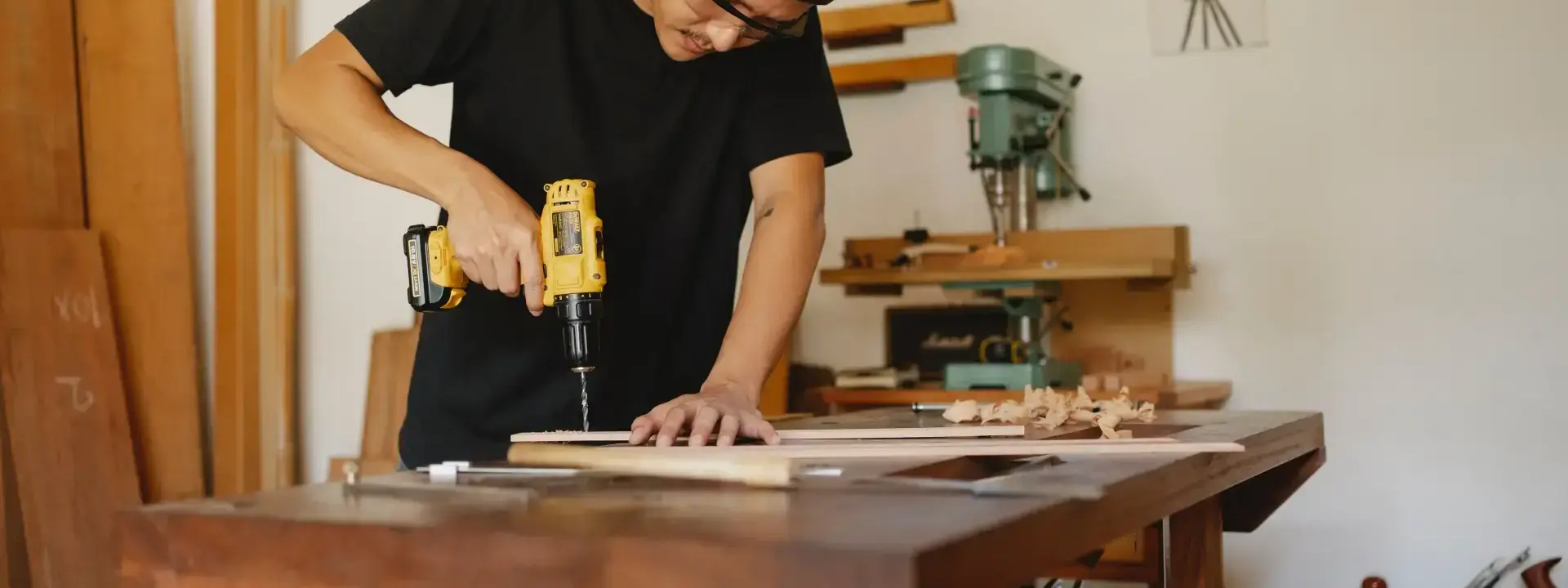
Joiner Job Description
What is a Joiner Professional?
A joiner is a person who joins wood or other materials together, usually using nails, screws, or adhesives. Joiners generally work in the construction industry and are responsible for creating everything from door frames to staircases. In some cases, joiners may also be responsible for installing flooring or constructing roofs
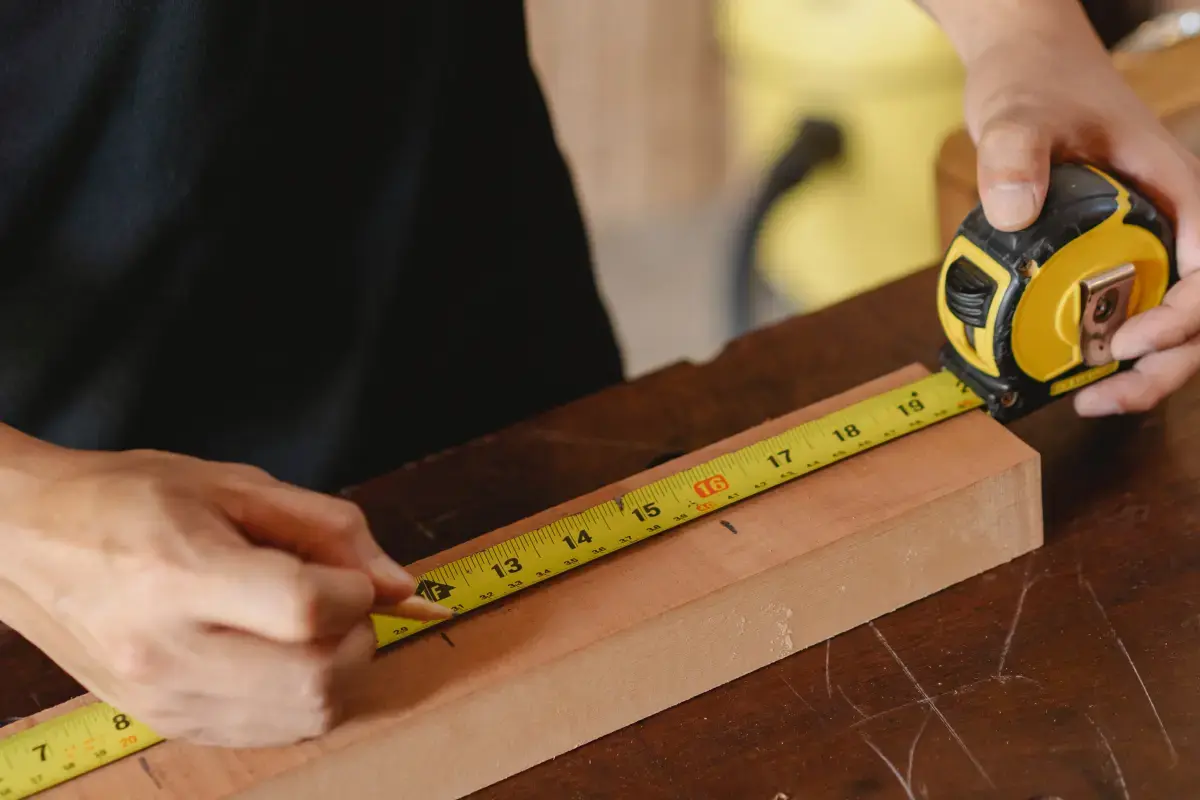
What does a Joiner Expert do?
The majority of joiners use hand tools such as hammers and chisels; however, some larger projects may require the use of power tools such as saws and routers. Joinery is a skilled trade that requires precision and accuracy; therefore, most joiners have undergone formal training before starting their careers.
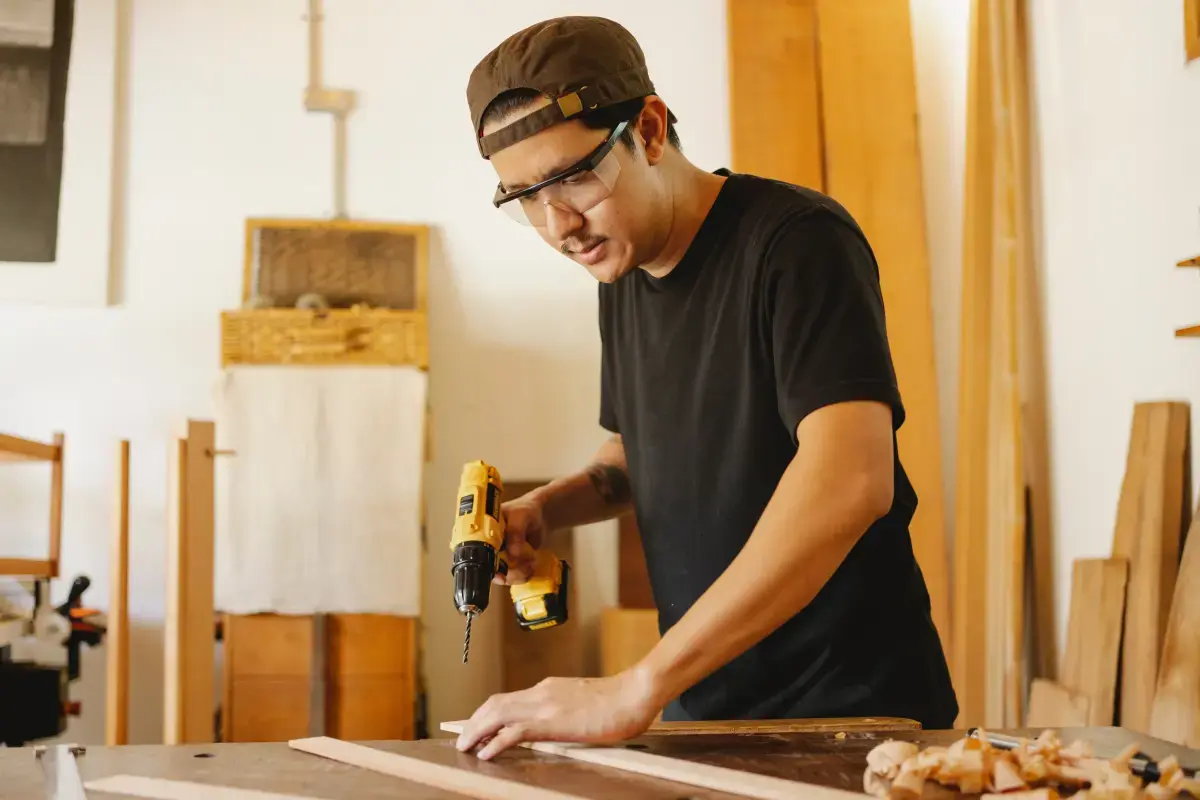
What are the Skills of a Joiner?
A joiner is a woodworker who uses various types of joining techniques to construct furniture, cabinets, and other wooden objects. A joiner may use hand tools, power tools, or both to create his or her products. Joiners must have excellent knowledge of woods and how they work together; strong math skills in order to measure angles and lengths accurately; good problem-solving abilities in order to develop solutions for fitting oddly shaped pieces together

What makes an Expert Joiner?
artistic talent for creating pleasing designs; physical strength and stamina for working with heavy lumber; manual dexterity for using small hand tools; patience when completing intricate maneuvers; mechanical aptitude for understanding how machines work and being able operate them safely. Joiners typically acquire their skills through on-the-job training or apprenticeships. Some also attend trade schools that offer carpentry programs.
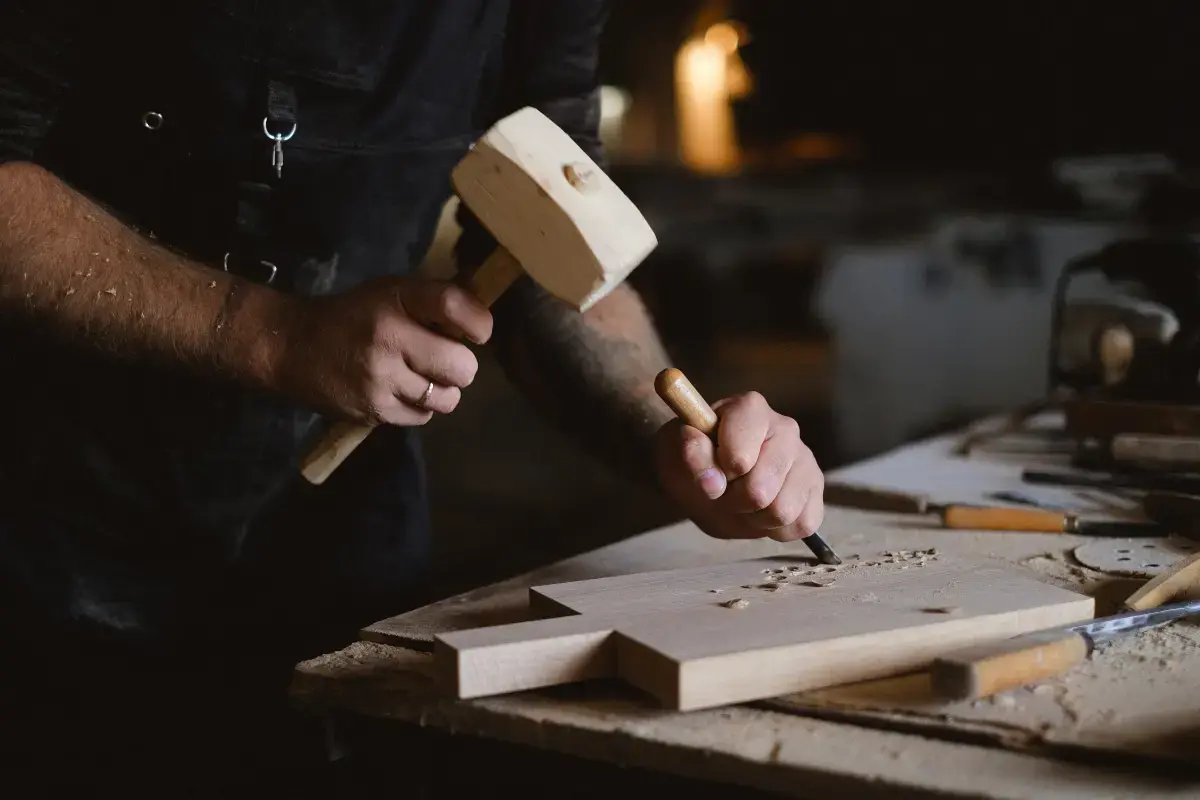
What level of Experience & Qualifications are required to be a Joiner?
Industry Experience: • Experience working in the carpentry and joinery trades • Previous experience of fitting, assembling, installation of wooden products • Ability to troubleshoot problems with timber frames, benches and other items built by joiners Training: • Formal Apprenticeship or Foundation Degree in Joinery/Carpentry Qualifications/Certifications: • NVQ Level 2 or 3 Qualification in Carpentry and Joinery / City & Guilds Craft Certificate in Carpentry & Joinery Education: • Bachelor degree (or higher) in a relevant subject
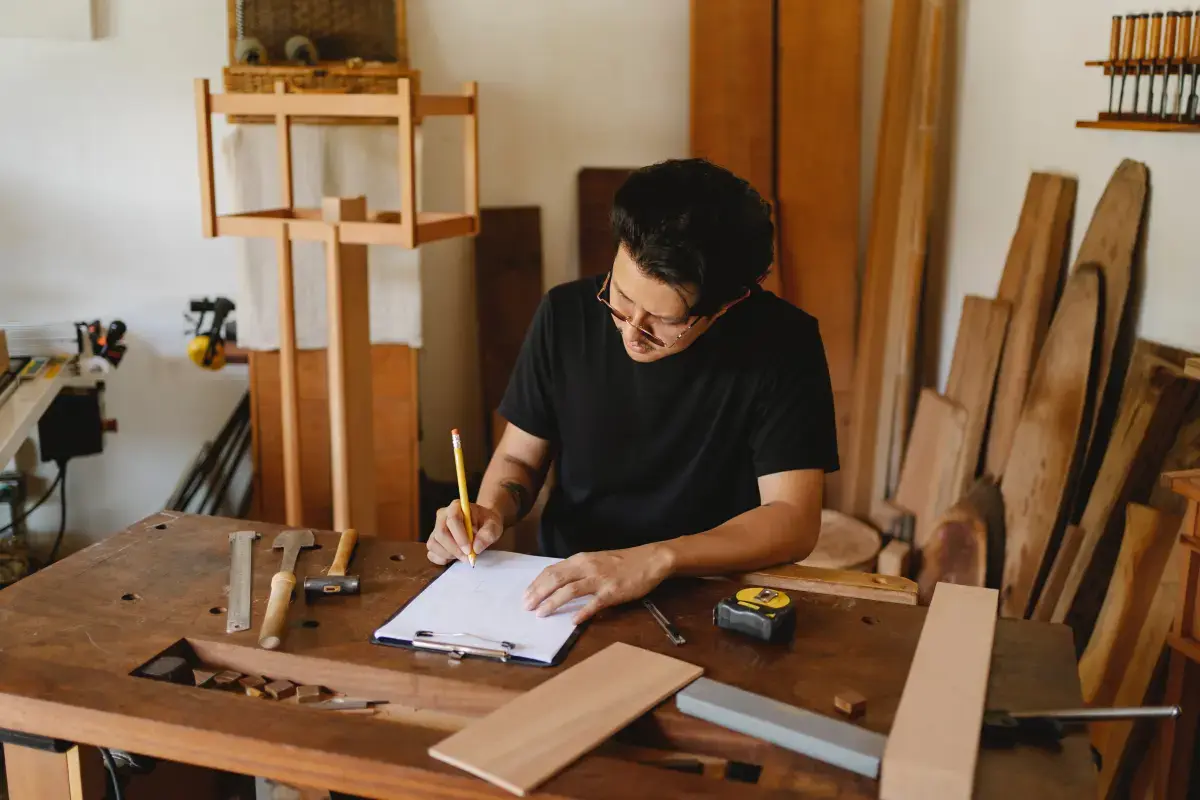
What is the Salary of a Joiner?
The range of salary expectations for a joiner will vary depending on the type of work being undertaken and the experience of the joiner. Generally speaking, entry level positions typically pay between £15,000 and £22,000 a year. As experience accumulates in the role, salaries can increase to around £28,000 to £35,000 a year. Senior-level positions may offer remuneration of up to or exceeding £45,000 per annum with additional benefits or bonuses dependent on workloads and job requirements. In addition to salary packages which are based upon hourly rates or flat fees that range from around £12/ hour for junior joiners up to as much as or more than £20/hour for experienced professionals (with particularly hard or specialised skills) may also be found; however this is generally less common than permanent packages due to lack flexible availability and potential overheads associated with taking on long-term contracts while considerable commitment is expected from both parties in return for any shift from short term contract employment arrangements . With regional variations taken into account thistop end figure can stretch even higher for joiners operating in some highly sought after localities while pay grades at all levels have been known rise significantly when dealing with bespoke contracts involving extraordinary skill sets and expertise required by discerning clients seeking complex solutions
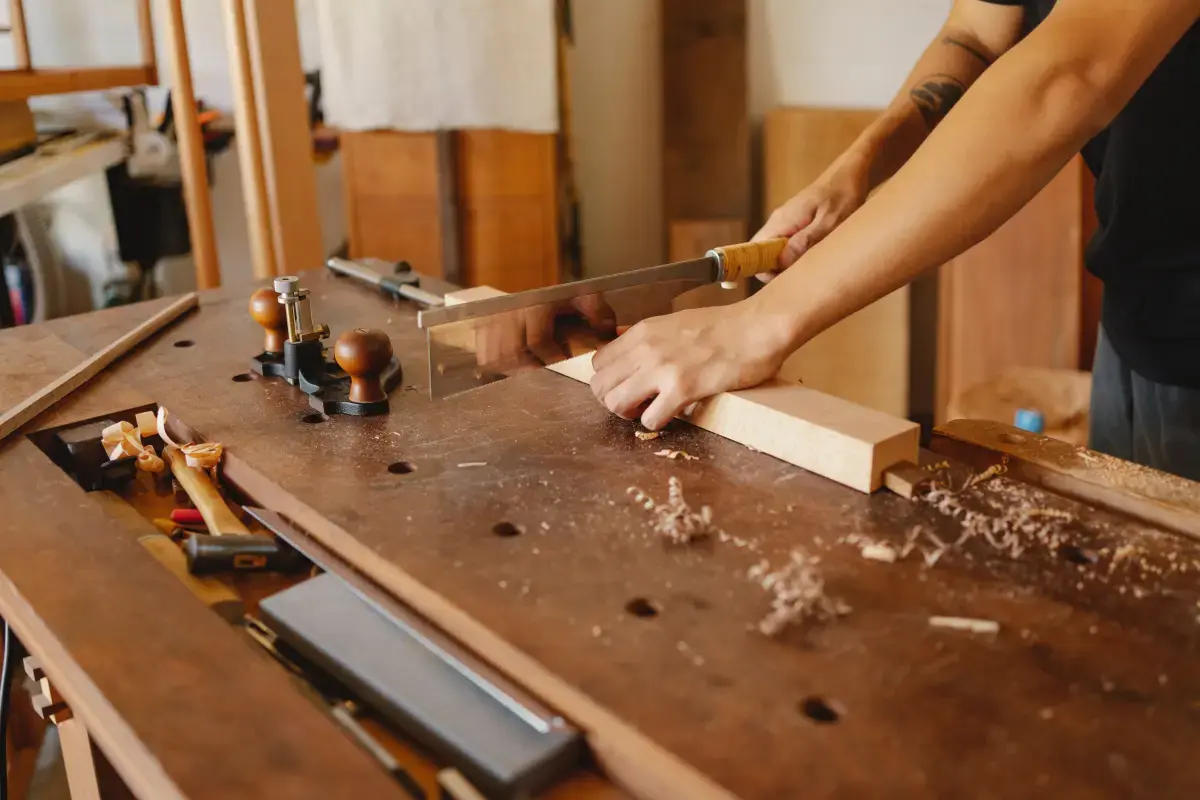
What are the Working Conditions for a Joiner?
A joiner typically works in a workshop making items from wood such as doors, window frames, furniture and flooring. Working conditions for joiners vary depending on the nature of the job; some jobs may involve working outdoors or in an office setting. Generally speaking, however, most joiners work in small centres characterised by excellent ventilation and temperature control to protect wooden materials from too much heat or cold during operation. The Joinery must be sufficiently lit with good quality adjustable lighting to allow precision work to be carried out safely and comfortably over extended periods of time. There is usually noise pollution due to the exercise of saws and other machinery but effective sound systems are often implemented so that workers are well within safety limits at all times when operating such machinery. Working hours can vary depending on customer demands but evening shifts are sometimes required as well as early starts/late nights/weekends if urgent orders need fulfilling quickly or big deadlines need meeting (e..g bookcases needing delivery before structural completion dates). Furthermore overtime is a regular part of life for many specialist joiners who achieve intricate standards particularly during assembly stages where high accuracy levels must be consistently stamped across entire batches without fail during production runs lasting several days at a stretch (e..g bespoke wardrobes).
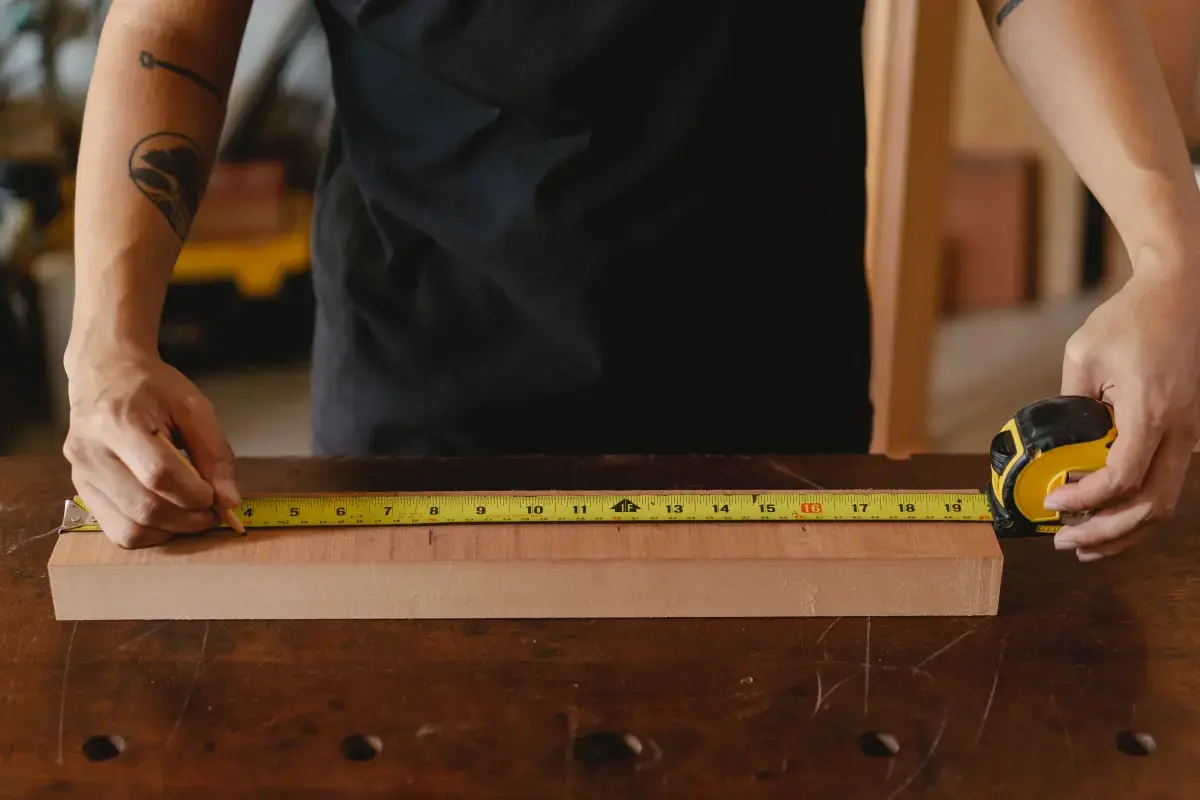
What are the roles and responsibilities of a Joiner?
Read and interpret blueprints, drawings, and sketches to determine specifications and calculate requirements
Select the type of wood or other materials required for a job
Measure, cut, shape, assemble, join together pieces of lumber or plywood using both power saws and hand tools. drill pilot holes; insert dowel pins or screws to hold sections together; finish joints by gluing them with clamps until adhesive dries.
Operate large computer numerical control equipment that automatically route out patterns specified in work order according to prescribed dimensions on stock material supplied
Load CNC machines with raw wooden boards feed it into planers that shave off thin layers until desired thickness is achieved feed thicknessed boards into shapers which use spinning bits to rout out hollow areas smooth down sharp edges
manually create custom shapes per customer request
Finish surfaces of woodworking projects by sanding them by hand using electric sanders polishing them applying lacquer varnish paint oil
Stain colors as requested By Customers
Assemble completed products make sure connections
Are secure before packing items up for shipment
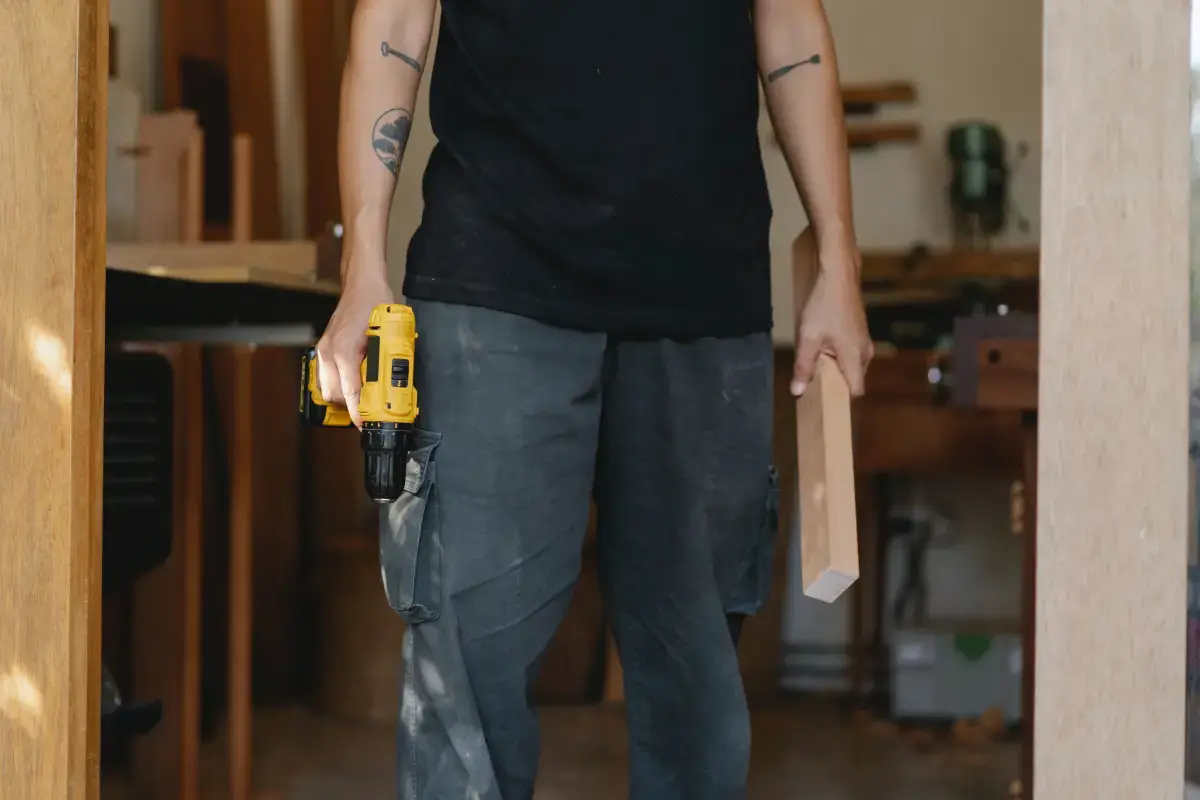
Where can I find Joiner jobs?
- Create a profile on gigexchange and promote your Joiner skills to advertise you are Open to New Work Opportunities
- Ensure your Resume (or CV), or online work profile is up to date and represents your skills and experience. Ensure your reputation reflects your ability & attitude.
- Apply for Joiner Jobs advertised on gigexchange.
- Practise Joiner interview techniques to ensure you represent your personality and ability succinctly and confidently.
- Accept the job offer if the salary meets your expectations and the employer mission and purpose reflects your core values.
Jobs
What are the best job boards for Joiner jobs?

How can I hire Joiner staff online for my business?
The best job board for recruiting Joiner experts is gigexchange.com. Advertise full-time, part-time or contract jobs to find, hire & recruit trusted, experienced and talented Joiner candidates near you.
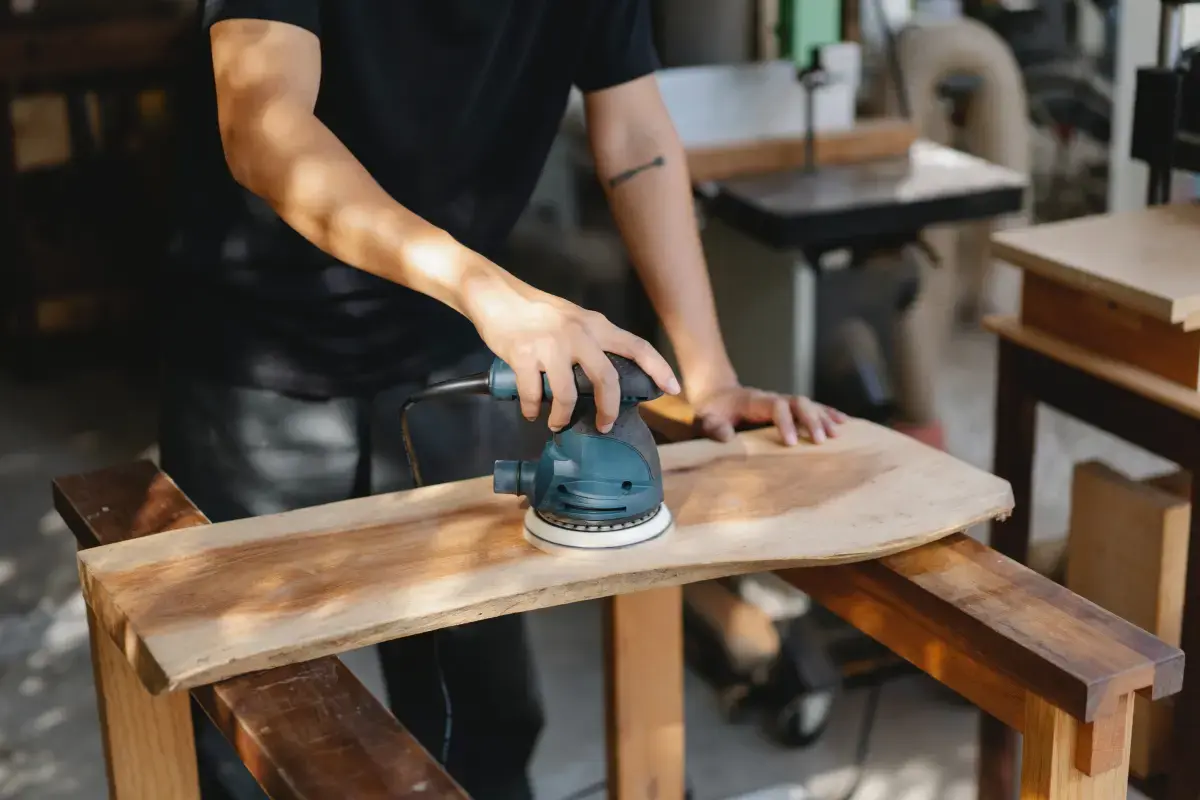
Are Joiner roles in demand in 2026?
Joiner experts are still in high demand in 2026. If you are an experienced Joiner or looking to train and become one. The job market is looking strong for Joiner jobs near me.